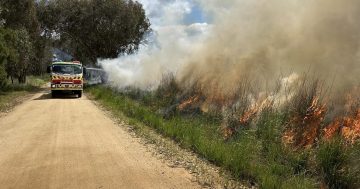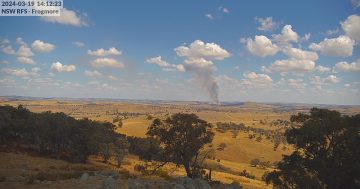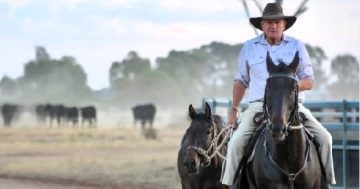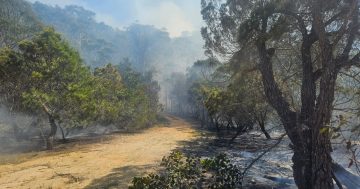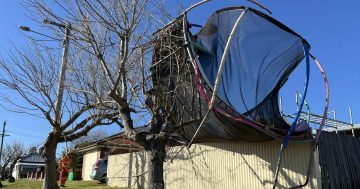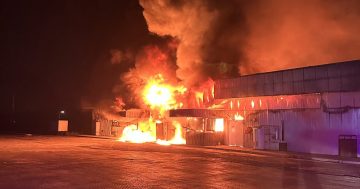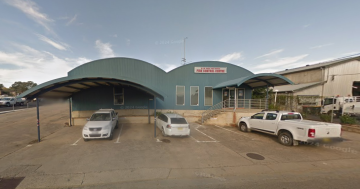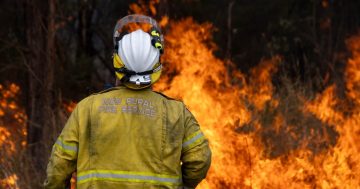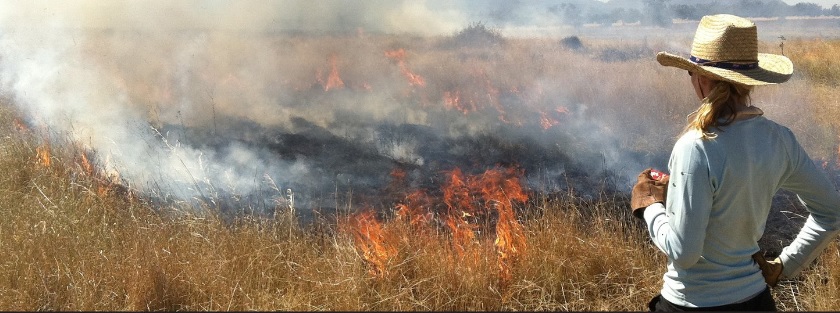
Even if you’ve been using fire on your property for years, safe burning is your responsibility, says South West Slopes Rural Fire Service (SWSRFS) district manager Superintendent Andrew Dillon. Image: NSWRFS.
The ground beneath our feet might be soggy but what lies above is the curveball that is likely to keep firefighters in southern NSW on their toes this summer.
With the October long weekend, came the official start to the statutory bushfire period across NSW which means fire permits are required for anyone wishing to burn out in the open.
But the shot across the bow came a month ago when the state’s Central West town of Gulgong came under threat from an out-of-control fire.
When windy conditions combined with frost-cured grasses flared up around five kilometres west of the small town, the wet and boggy conditions proved so challenging for ground crews, the call went out for air support.
As a water-bombing helicopter attacked the head of the fire, the ground crews retreated to back-burning operations to protect houses and infrastructure, including the 145-hectare Beryl Solar Farm.
Down here in the South West Slopes Rural Fire Service (SWSRFS) district manager Superintendent Andrew Dillon said that that fire served as a warning to everyone to be prepared and alert.
“Conditions are the same if not wetter than last year I believe, at the moment it’s highly likely that a fire truck will get bogged,” he said.
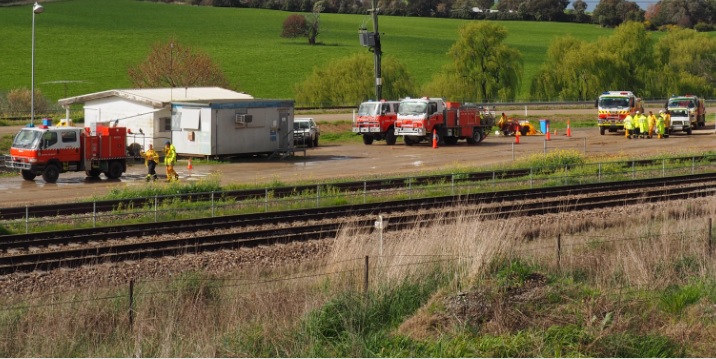
South West Zone rural fire service volunteers were recently put through a series of exercises near Harden to prepare for the upcoming fire season. Image: SWSRFS.
“Right now the fire risk is low due to high rainfall and new growth, but the forecast through until Christmas indicates wetter than normal conditions and by early 2023, given warmer conditions, the fuel load will be indicative of a significant risk,” he said.
There are 50 rural fire brigades within the South West Slopes Zone, which takes in the local government areas of Cootamundra, Harden, Young and Boorowa.
Supt Dillon said the 2021-2022 fire season had been reasonably quiet through to the fall burn-off period where some 40,000 hectares were subjected to controlled or agricultural burns.
“They were conducted really well. Very safely, very professionally with only a few escapes that required a multi-tanker response,” he said.
Upgraded tanks in the region were proving particularly popular with the volunteer brigades, who themselves have been congratulated for their service.
In April the South West Slopes Zone were handed the keys to a new $354,000 fire truck set to assist the Jugiong brigade volunteers provide a greater level of fire protection to their local community.
The event also recognised nine Jugiong brigade members who had, combined, amassed 239 years of service to the NSW RFS.
Jugiong RFS captain Kevin Fairall was commended for his 47 years of service and vice-captain James Grange for his 45 years.
Both men were also presented with the National Emergency Medal and are among 126 local volunteers who have been honoured in recent months for their efforts during the 2019-20 fire season.
The medal was awarded to those whose service was in the protection of lives and property or in the service of interests that are not their own and who supported the emergency response for a minimum of five days between September 2019 and February 2020.
Many personnel from the South West Zone were dispatched to assist with the firefighting efforts across the state during the Black Summer bushfires – to towns such as Glen Innes, Cooma, South Coast, Kempsey, Mudgee, and the Snowy Valley Region for the Dunns Road fire.
Supt Dillon said now that the bushfire danger period was in force, people wishing to light a fire in the open will require a permit, which is free and can be obtained from their local rural fire brigade or fire control centre.
“Even if you’ve been using fire on your property for years, safe burning is your responsibility,” he said.
Residents can call the South West Slopes Fire Control Centre on 02 6386 1700 or the Bush Fire Information Line on 1800 NSW RFS (1800 679 737) for information about safe burning.






